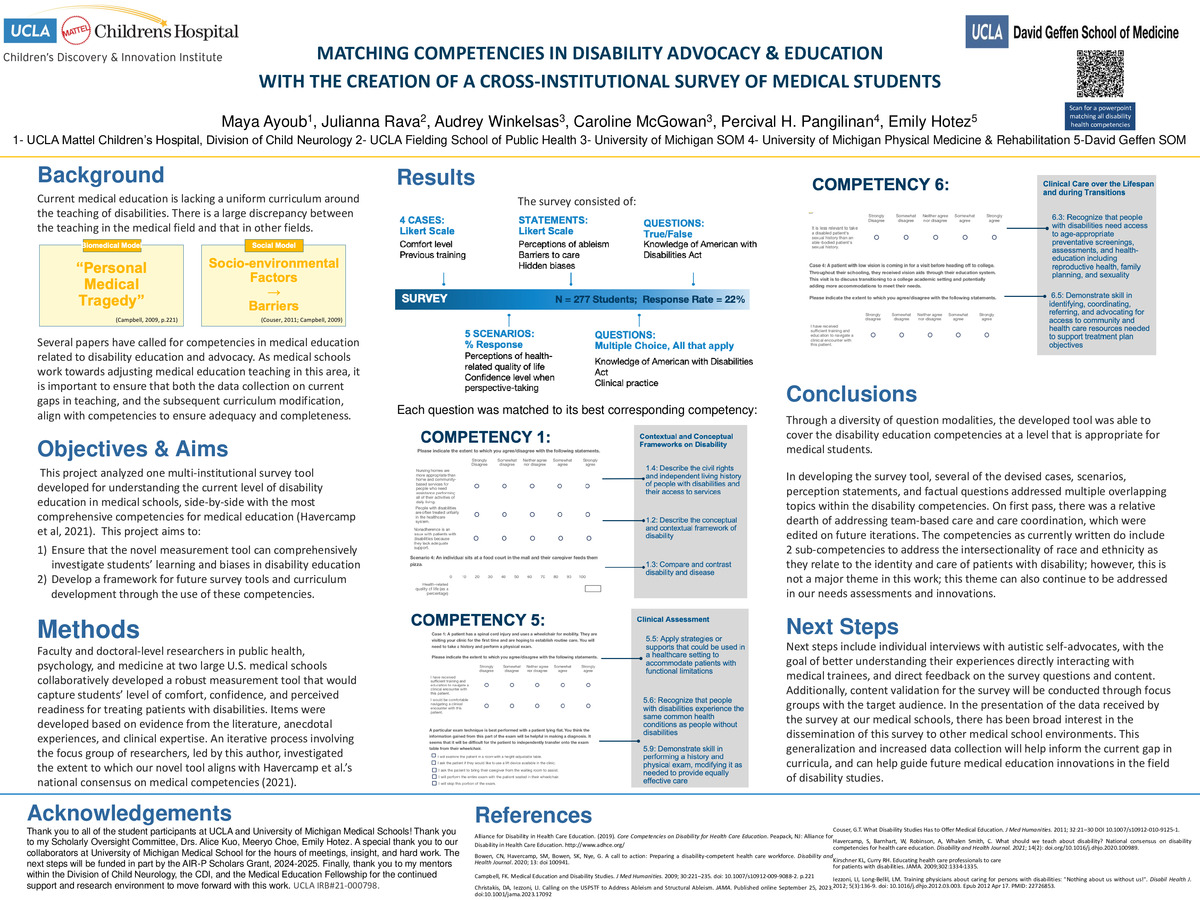
-
Author
Maya Ayoub -
Poster Title
Educational competencies for disability justice within a cross-institutional medical student survey
-
Author(s)
Maya Ayoub, MD, EdM, Julianna Rava, PhD, MPH, Audrey Winkelsas, DPhil, Caroline McGowan, BS, Percival H. Pangilinan, MD, Emily Hotez, PhD
-
Contact Author Email
mayaayoub@mednet.ucla.edu
-
Poster Abstract
Medical education is lacking a uniform curriculum around the teaching of disabilities. Several papers have called for competencies related to disability education and advocacy. It is important to ensure that both data collection on current gaps in teaching, and subsequent curriculum modification, align with competencies to ensure adequacy and completeness. This project analyzed a multi-institutional survey tool developed for understanding the current level of disability education in medical schools, side-by-side with the most comprehensive competencies for healthcare education (Havercamp et al, 2021). It aims to ensure that the tool can comprehensively investigate students’ learning and biases in disability education. Researchers in public health, psychology, and medicine at two U.S. medical schools collaboratively developed a robust measurement tool that would capture students’ level of comfort, confidence, and perceived readiness for treating patients with disabilities. Items were developed based on literature, anecdotal experiences, and clinical expertise. An iterative process involving the researchers investigated the extent to which the novel tool aligns with Havercamp et al.’s national consensus on medical competencies. The survey consisted of: cases probing students’ training and comfort level around working with individuals with disabilities; scenarios to probe students’ perceptions of quality of life; a series of statements focused on perceptions of ableism and barriers to care; and questions probing students’ knowledge of The American with Disabilities Act. Through a diversity of question modalities, the tool was able to cover the disability education competencies at a level that is appropriate for medical students. Next steps involve the creation of focus groups, to gain feedback from autistic self-advocates and individuals with disabilities on the tool, and dissemination to other medical schools, to help guide future medical education innovations.
-
Keywords
medical education, curriculum, interprofessional education, other Survey Creation
-
Poster PDF

